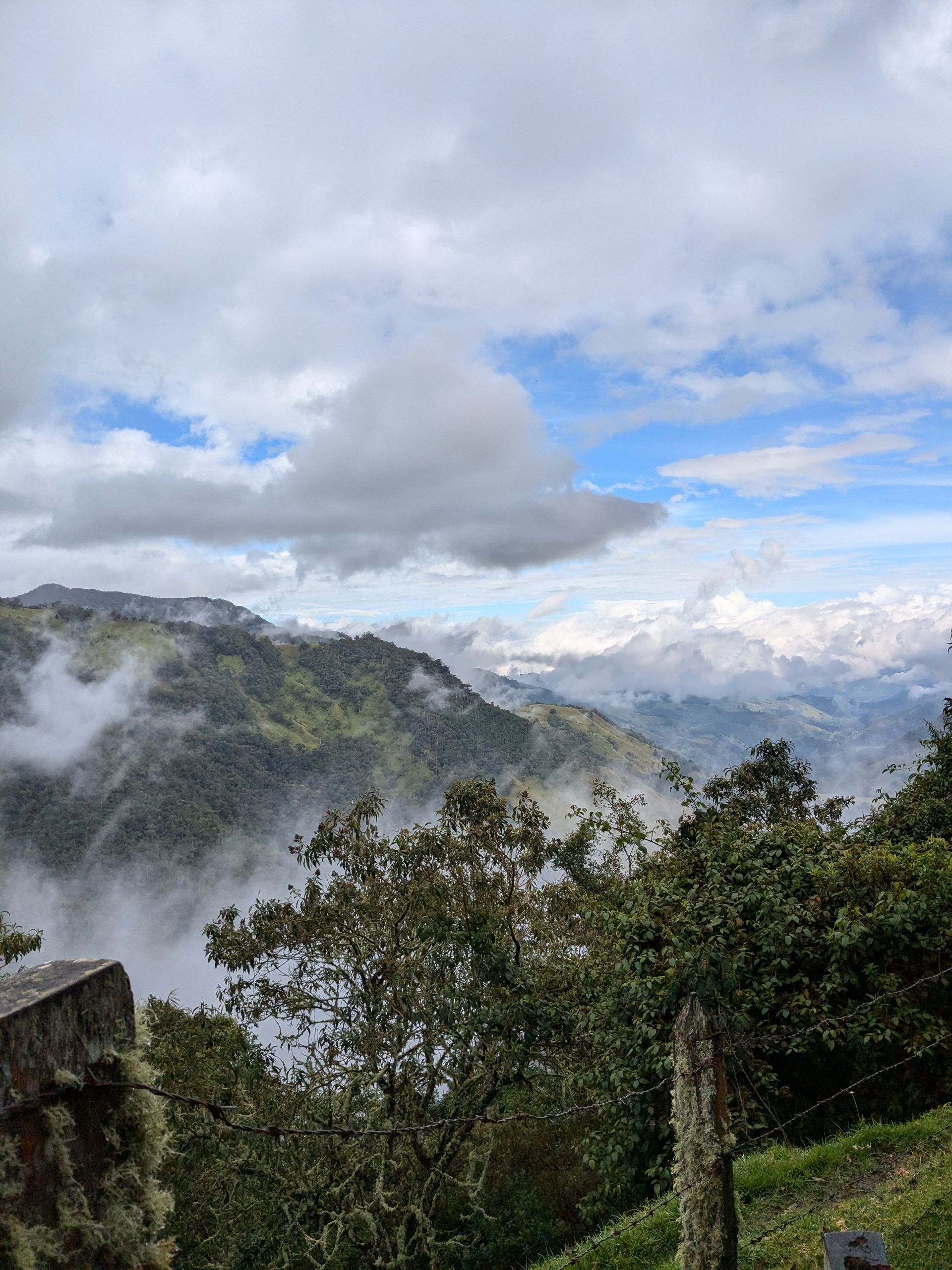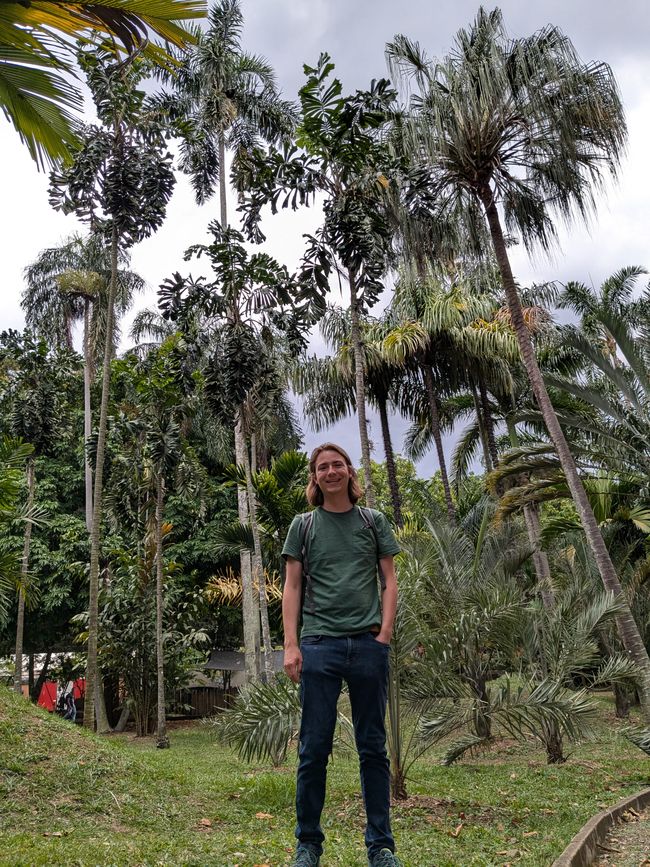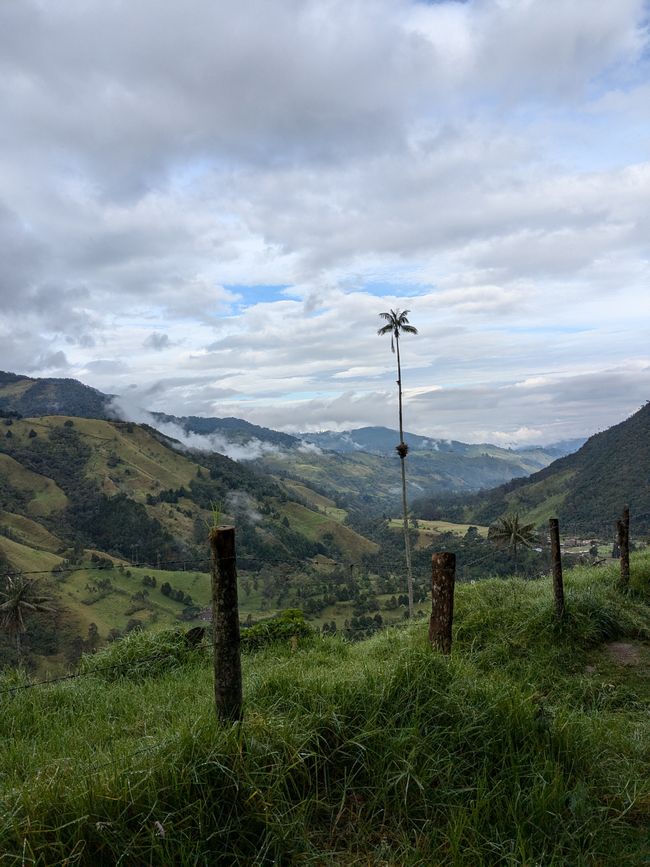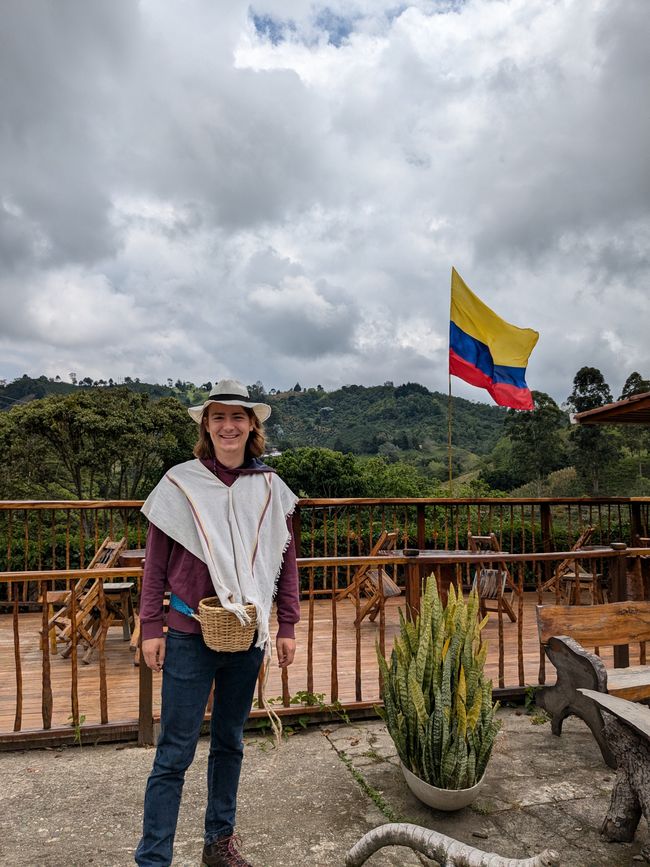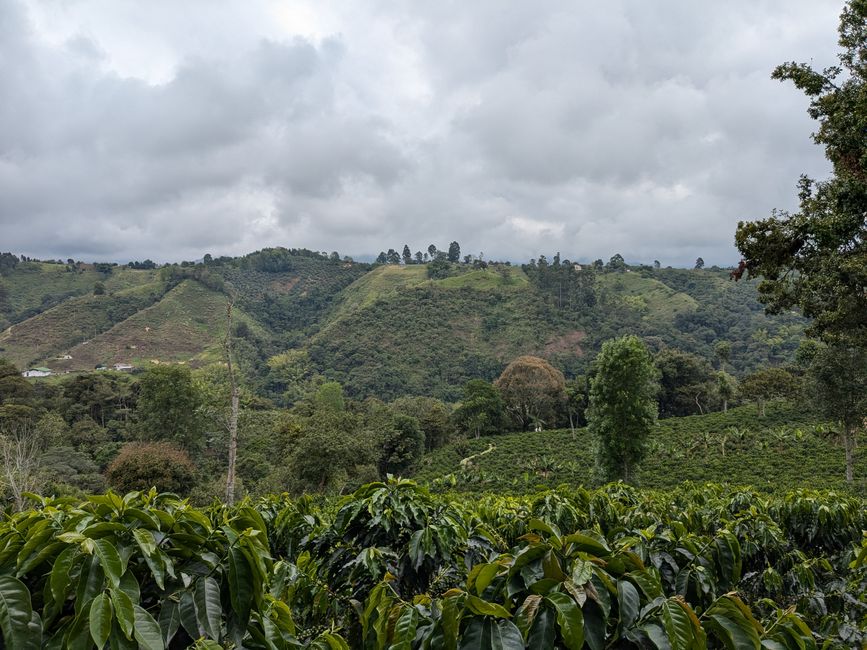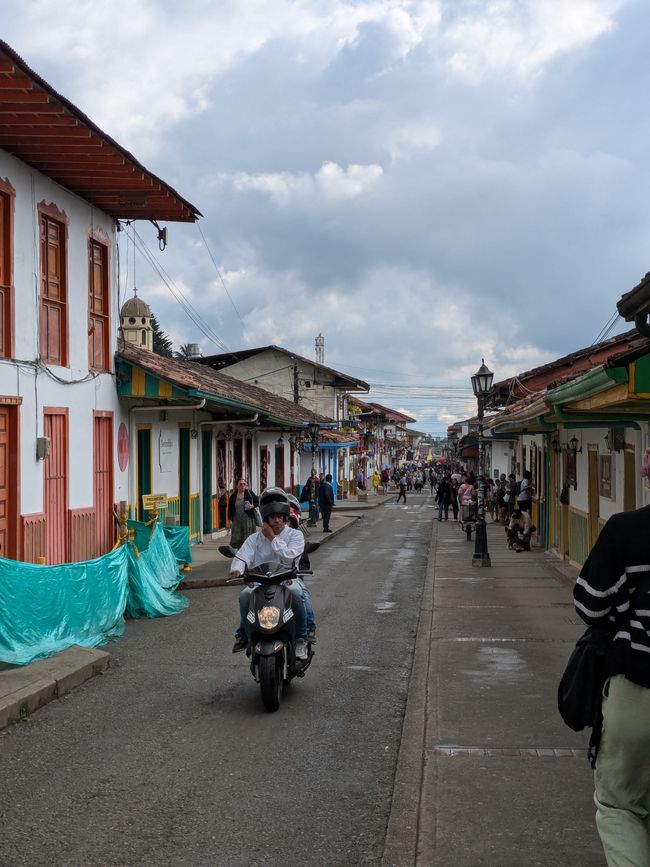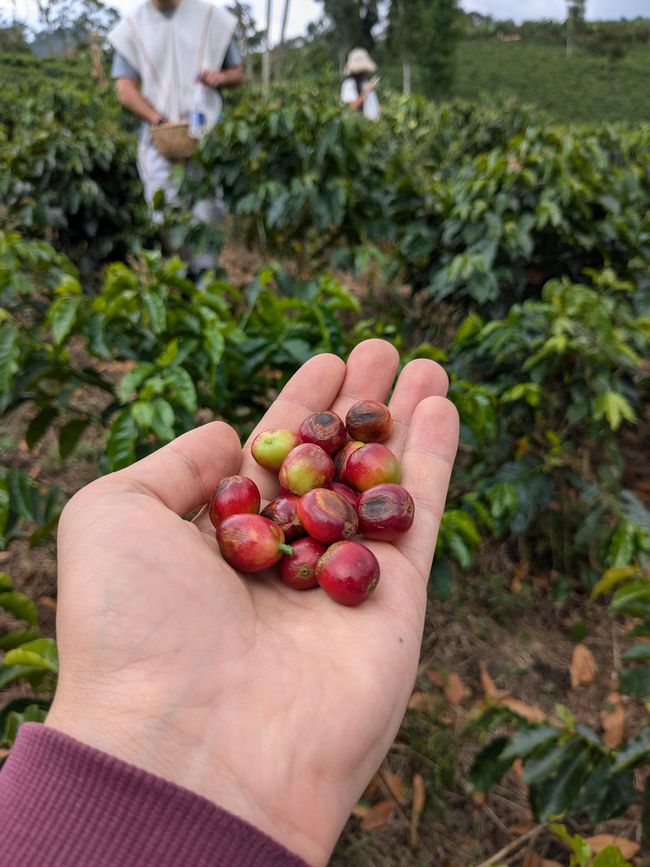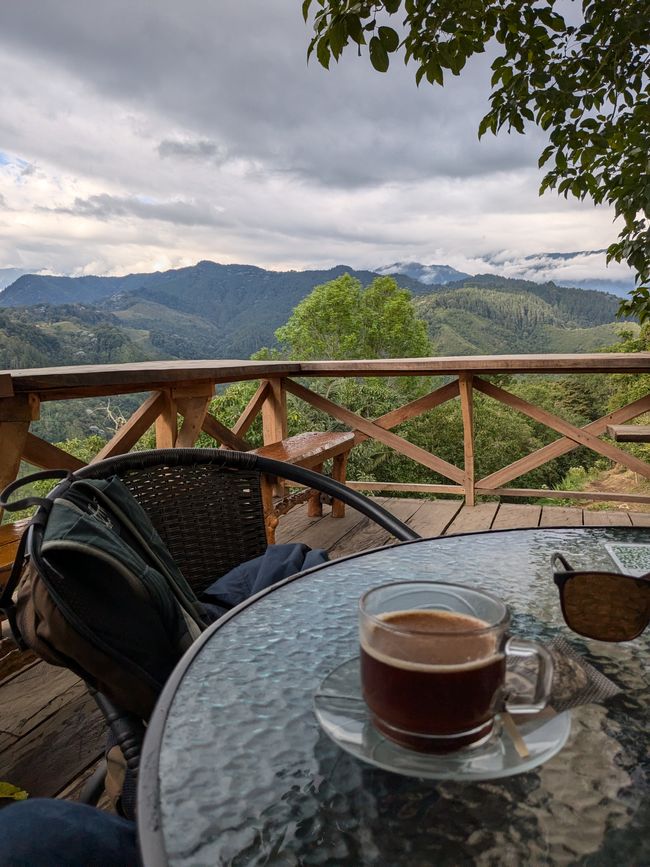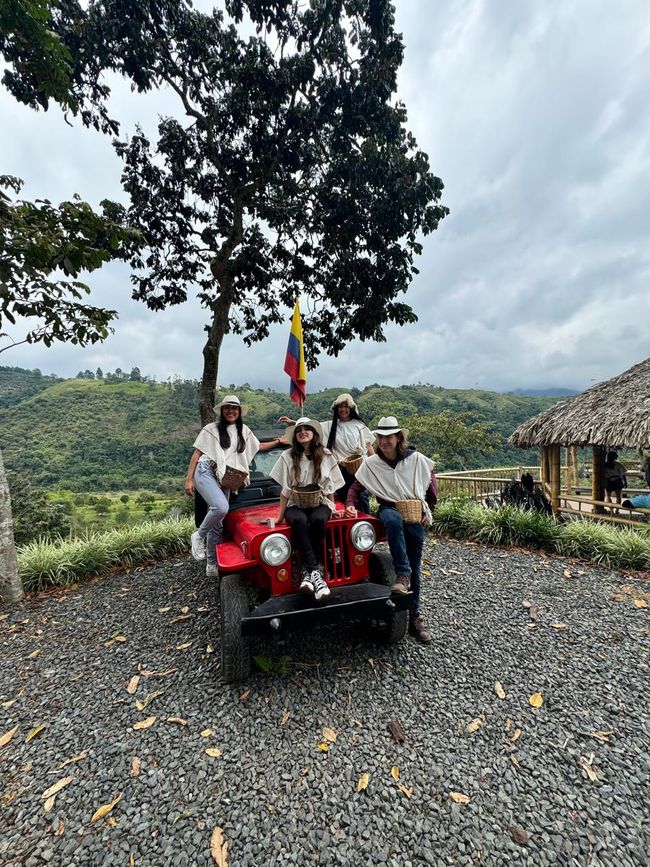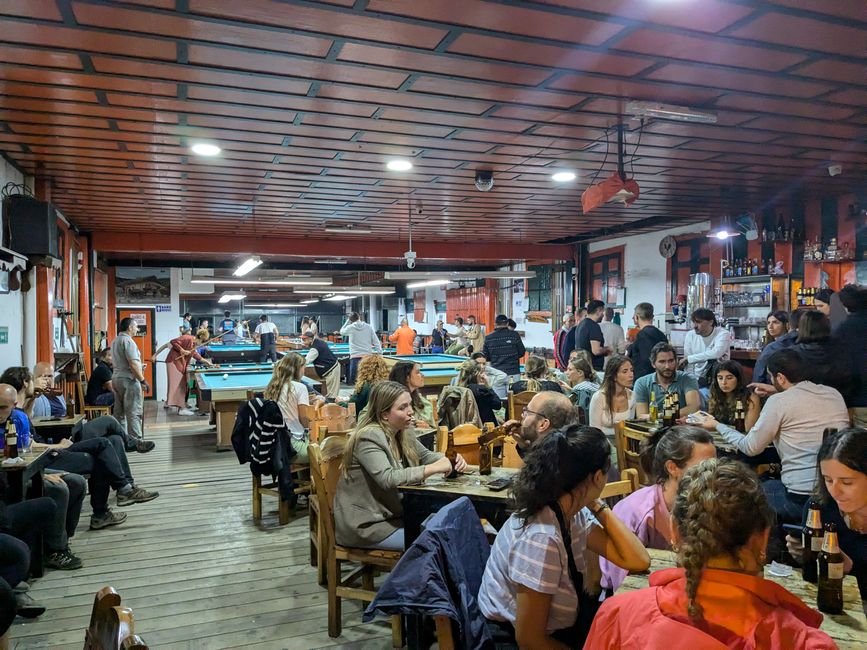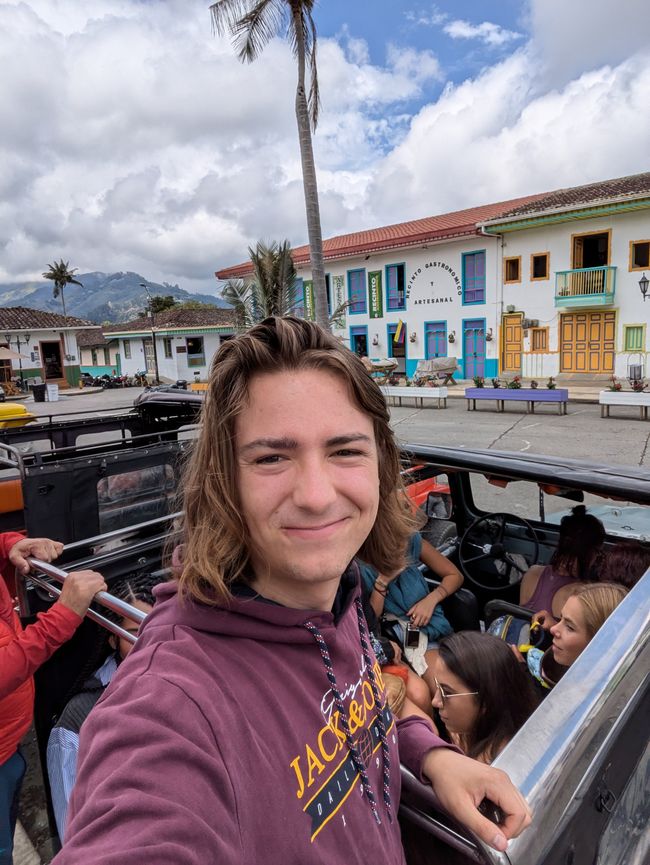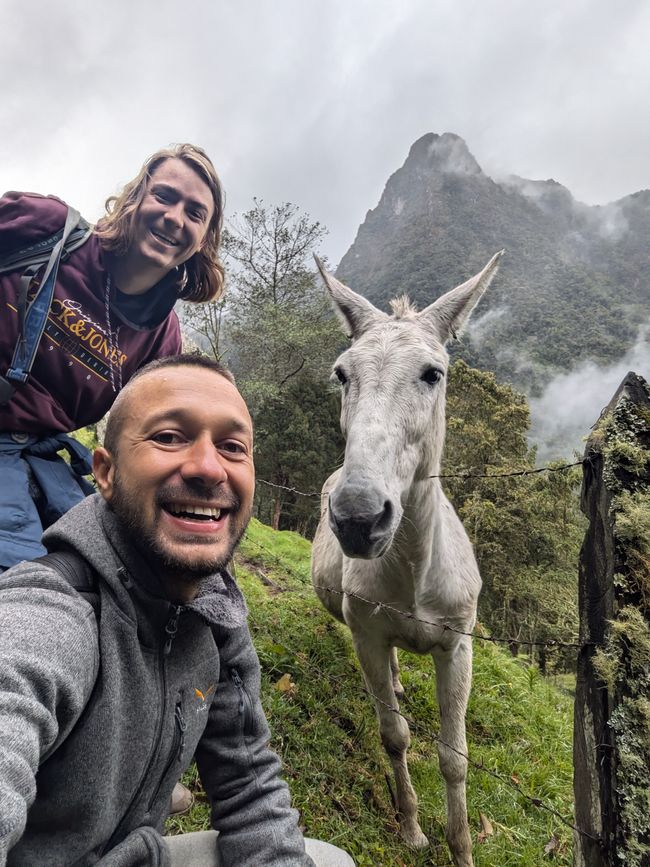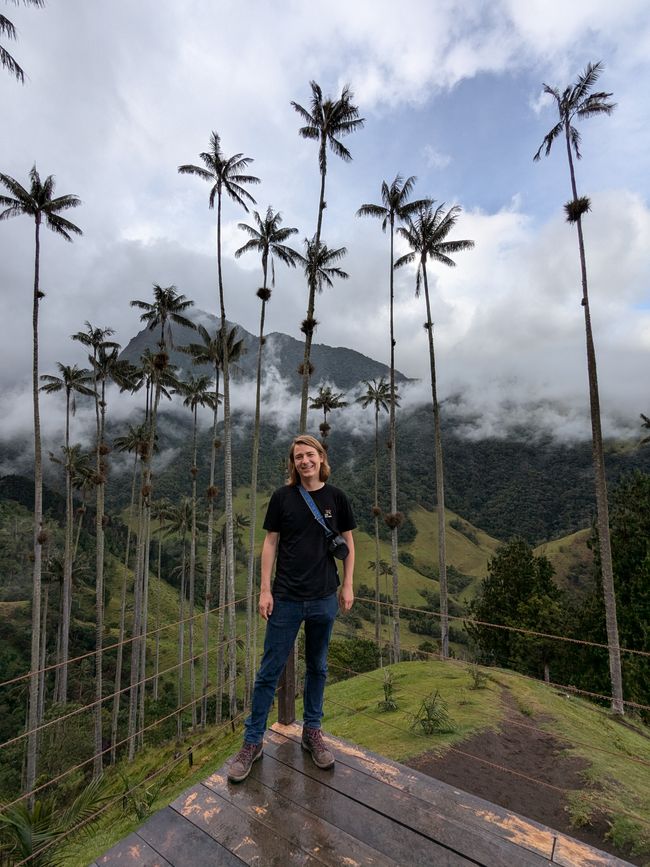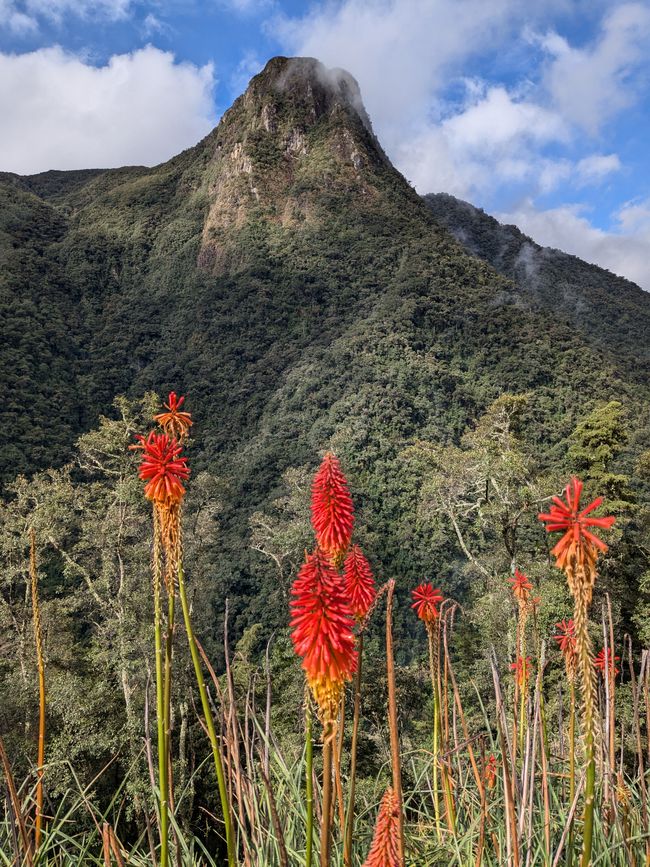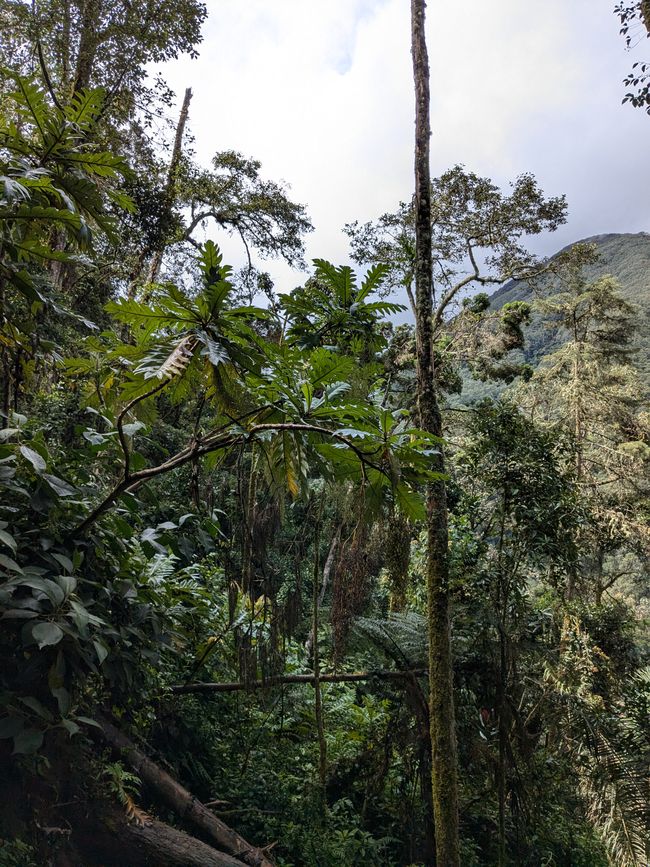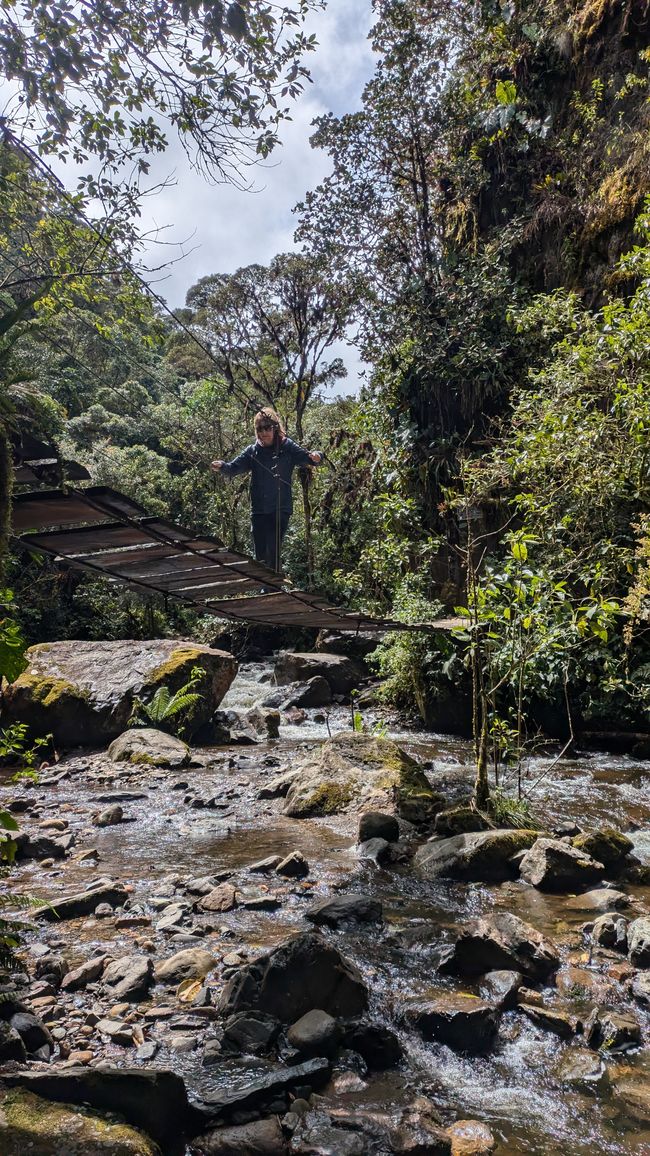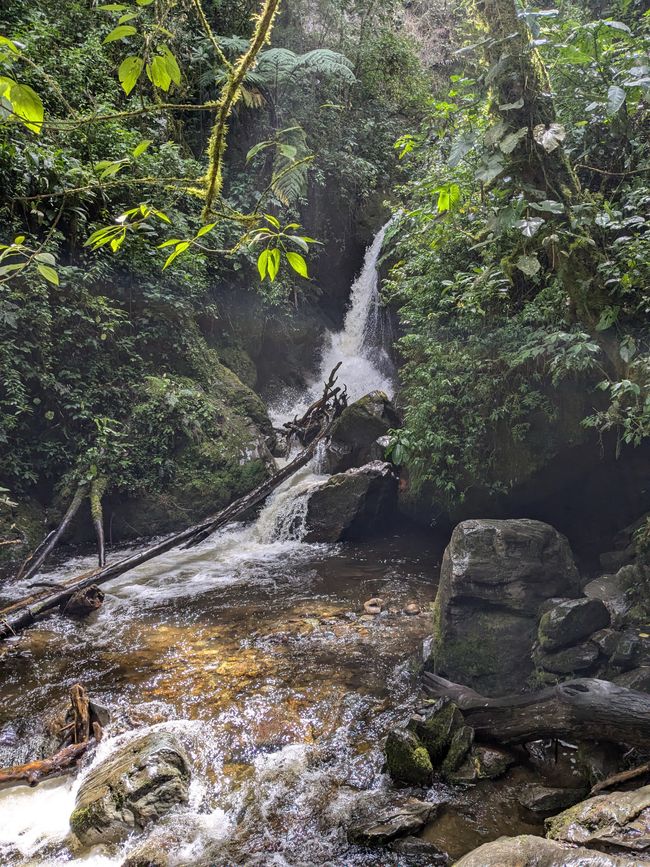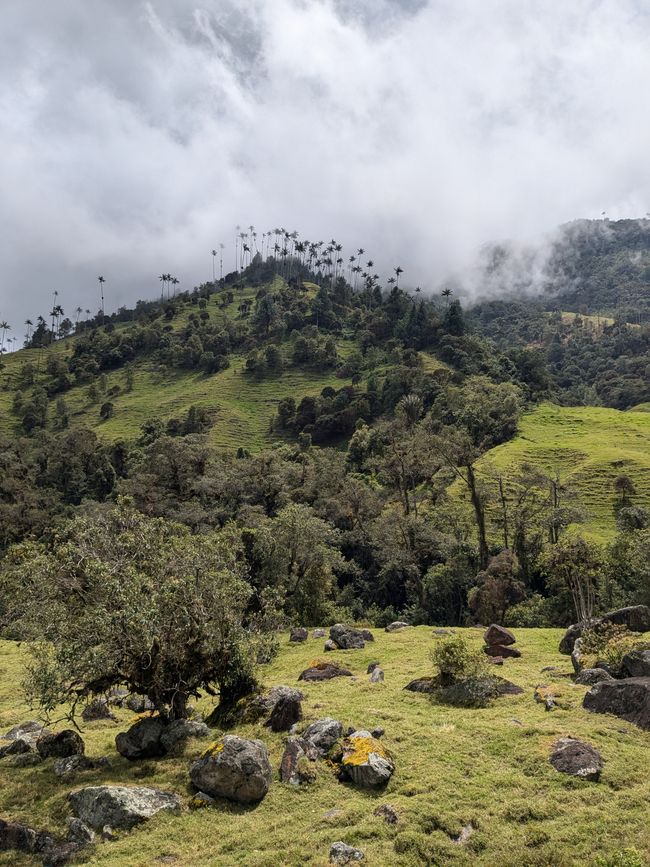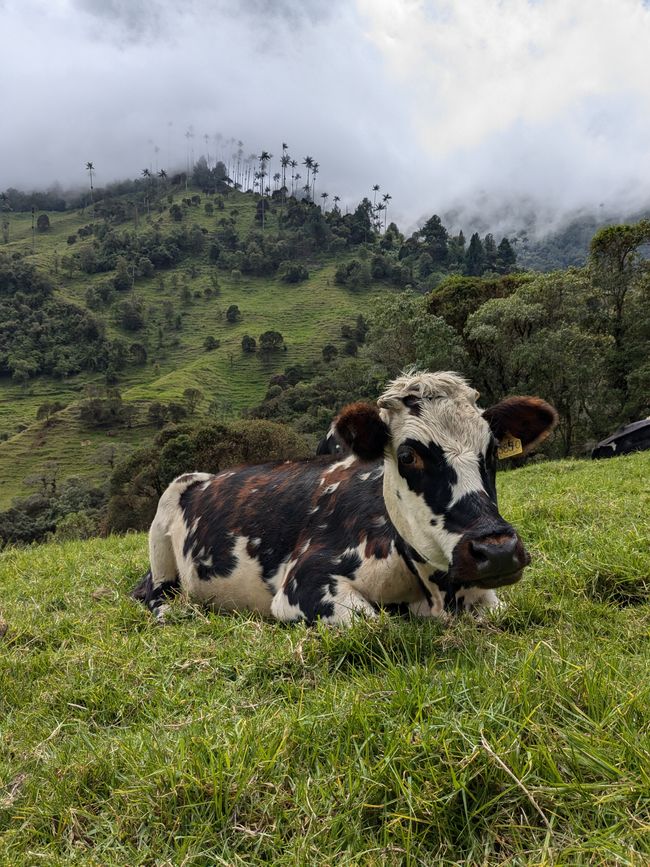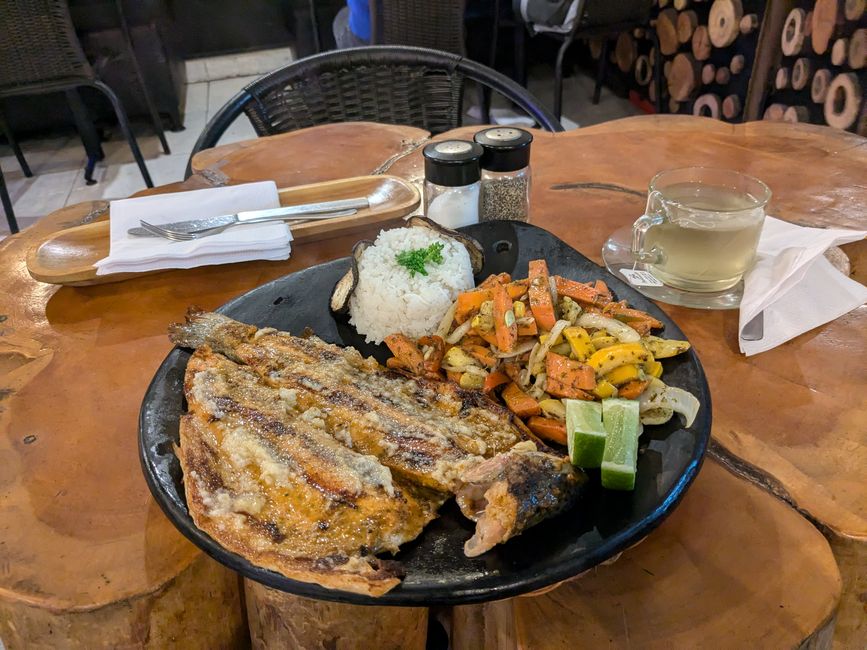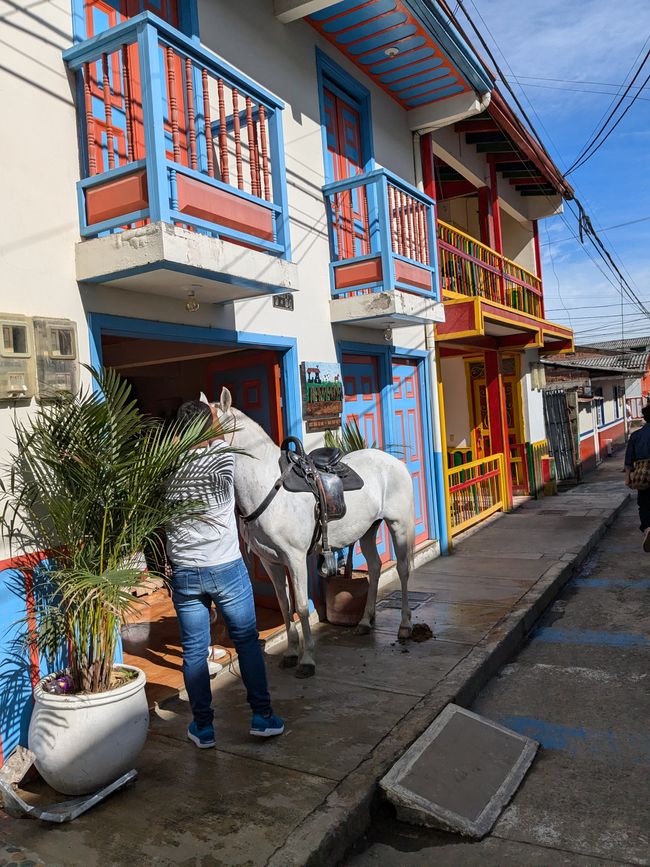Salento
Publicados: 03.09.2024
Assine o boletim informativo
Quindío, the emblematic coffee-growing region of Colombia, was an absolute must-see for me on this trip. I took a tourist bus from Medellín and arrived at my hostel in Salento in the evening. I'm not referring to a pizzeria in my Bavarian village, but rather to a town with 9,000 inhabitants that, with its 1.2 million annual visitors, is practically the Neuschwanstein of Colombia. As soon as I woke up the next morning, three Mexican girls checked into my room. We introduced ourselves, and I asked them if they had plans for the day. Together, we headed to Plaza Central to spontaneously take a coffee tour. We jumped into a 'Willy.' These Jeeps were once imported by the U.S. government in exchange for Colombian coffee. Our Willy was well-packed: two tourists sat in the front seat, eight on the benches, and four more (including me) found room on the running board. Bravely, I took a few photos during the winding ride past banana and coffee plantations, although I didn't always succeed in dodging the branches.
When we arrived at Finca Buenos Aires, we were given a thin poncho and a hat and had a two-hour guided tour covering all the details of Colombian coffee cultivation, including a tasting. I spent the rest of the day exploring the picturesque streets of Salento. Although the center, like Guatapé, is heavily influenced by tourism, there are still corners that provide a glimpse into rural Colombia. This region has a certain Wild West vibe, with cowboys herding cattle on horseback and the Danubio Bar. In this large saloon, besides drinking, two sports are extensively practiced: billiards and Tejo, a throwing game with small explosives (more on that soon in the Bogotá entry).
The next day, we set off at 6 a.m. for the Cocora Valley. My three new friends soon parted ways with me and Lyubomir, a Bulgarian backpacker who had joined us. While the three created content for Instagram and TikTok at the entrance, we embarked on the 8 km hike. This took us to the spectacular views for which the valley is known throughout Colombia and beyond. As we were among the first on the trail, we could take our time photographing the Cocora wax palms, which are the tallest palms in the world. The higher we climbed, the more we entered a cool fog forest, where we repeatedly spotted various colorful birds. After a quick refreshment with Café Tinto at the highest point of the trail, we continued down into a narrow side valley carved by a mountain stream. The suspension bridges we had to cross multiple times (I felt much more comfortable than Lyubomir) gave me strong Indiana Jones vibes. Back in the village, I met up with the Mexicans at a café again and enjoyed a delicious trout in the evening.
Español:
Quindío, la emblemática región cafetera de Colombia, fue un destino imprescindible para mí en este viaje. Desde Medellín, tomé un bus turístico y llegué por la noche a mi hostal en Salento. No se trata de una pizzería en mi pueblo bavaro, sino de un pueblo con 9.000 habitantes que, con sus 1,2 millones de visitantes anuales, es prácticamente el Neuschwanstein de Colombia. Apenas me desperté a la mañana siguiente, tres mexicanas se mudaron a mi habitación. Nos presentamos, y les pregunté si tenían planes para el día. Juntas nos dirigimos hacia la Plaza Central para hacer una gira de café de manera espontánea. Saltamos en un 'Willy', un tipo de Jeep que fue introducido originalmente por el gobierno de los EE. UU. en intercambio por café colombiano. Nuestro Willy estaba lleno: dos turistas se sentaron en el asiento delantero, ocho en los bancos, y cuatro más (incluyéndome a mí) encontraron lugar en el estribo. Con valentía, tomé algunas fotos durante el viaje lleno de curvas, pasando por plantaciones de banano y café, aunque no siempre logré evitar las ramas.
Cuando llegamos a la Finca Buenos Aires, nos dieron un poncho y un sombrero delgados y luego nos llevaron a una visita guiada de dos horas que cubría todos los detalles del cultivo de café en Colombia, incluyendo una degustación. Pasé el resto del día explorando las pintorescas calles de Salento. Aunque el centro, al igual que Guatapé, está fuertemente influenciado por el turismo, todavía hay rincones que ofrecen una visión del Colombia rural. Esta región tiene un cierto aire del Viejo Oeste, con vaqueros arreando ganado a caballo y el bar Danubio. En este gran salón, además de beber, se practican extensamente dos deportes: el billar y el Tejo, un juego de lanzamiento con pequeños explosivos (más sobre esto pronto en la entrada de Bogotá).
Al día siguiente, salimos a las 6 a.m. hacia el Valle del Cocora. Mis tres nuevas amigas pronto se separaron de mí y de Lyubomir, un mochilero búlgaro que se nos había unido. Mientras ellas creaban contenido para Instagram y TikTok en la entrada, nosotros emprendimos la caminata de 8 km. Esta caminata nos llevó a las vistas espectaculares por las que el valle es conocido en toda Colombia y más allá. Como éramos de los primeros en el sendero, pudimos tomarnos nuestro tiempo para hacer fotos con las palmas de cera de Cocora, que son las palmeras más altas del mundo. Cuanto más subíamos, más nos adentrábamos en un fresco bosque de niebla, donde avistamos varias aves coloridas. Después de un pequeño refrigerio con Café Tinto en el punto más alto del sendero, descendimos a un estrecho valle lateral tallado por un arroyo de montaña. Los puentes colgantes que tuvimos que cruzar varias veces (me sentí mucho más cómodo que Lyubomir) me dieron una fuerte sensación de Indiana Jones. De vuelta en el pueblo, me reuní con las mexicanas en un café y disfruté de una deliciosa trucha por la noche.
Assine o boletim informativo
Responder
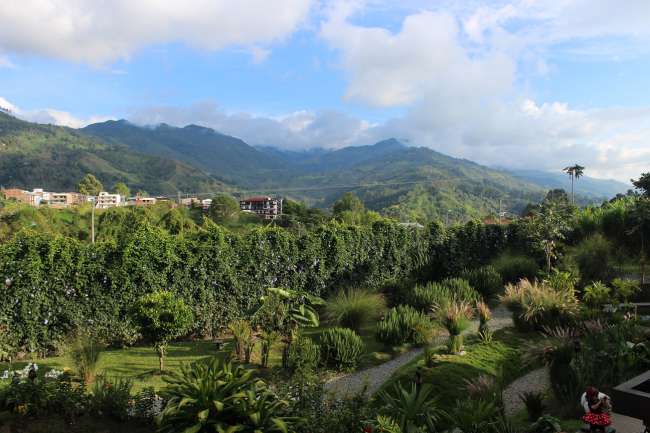
Relatórios de viagem Colômbia
